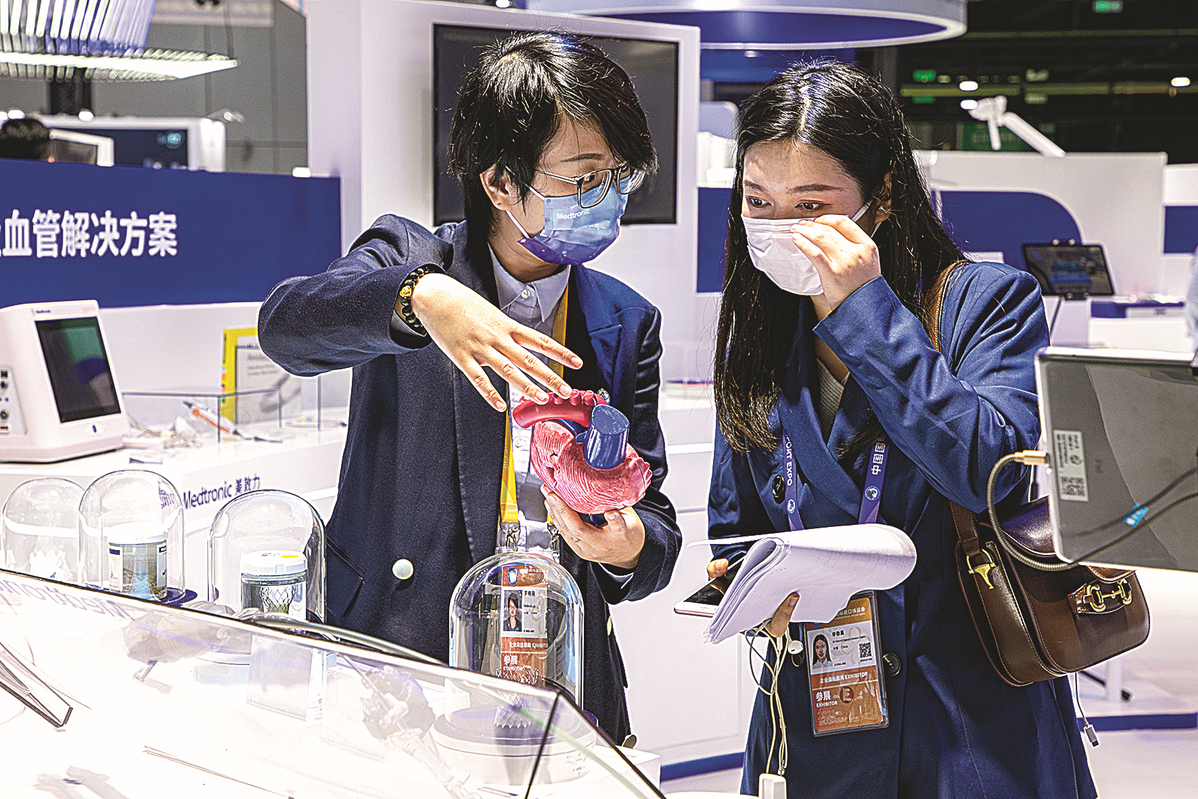MNCs plug into open innovation initiatives


German chemical giant Covestro is embracing the Group Open Innovation initiative of the government of Shanghai's Pudong New Area, which is also home to the company's Asia-Pacific headquarters.
The GOI plan, currently enrolling 34 technologically advanced companies, encourages industry leaders like Covestro to set up open innovation platforms and calls for deeper integration among government services, industries, universities and research institutes.
It has also established a post-doctoral station at its Polymer Research and Development Center, the R&D hub for Asia-Pacific.
These open innovation projects stand on a slew of stellar figures Covestro registered in China, its largest single market.
Sales in the country jumped 57.5 percent year-on-year to 3.54 billion euros ($3.9 billion) in 2021, which outpaced an already robust 48.5 percent growth for the group and occupied 22 percent of the global pie, according to Holly Lei, senior vice-president of Covestro and president of Covestro China.
Volume for core businesses also surged 14.3 percent (versus 10 percent globally). Total investment in China amounted to over 3.8 billion euros by the end of last year.
To make itself more resilient in, and relevant to, the local market, Covestro has built up a track record of forging strong ties with partners, as represented by its partnership with Tongji University on new energy cars and sustainable materials. Their partnership is more than a decade old.
Similarly, it recently signed a memorandum of understanding with the Shanghai Institute of Organic Chemistry, which is part of the Chinese Academy of Sciences.
Companies that have a strong foothold in local ties tend to deliver a strong China balance sheet, experts said.
Proof of that came from the latest earnings from science and technology conglomerate Merck, which showed that the Asia-Pacific region contributed around 36 percent to its revenue. The region is "driven by China to a great extent", said Belen Garijo, chair of the executive board and CEO of Merck.
"The commitment and the level of investment in China span across the three sectors," Garijo said in a conference call to reporters in March, citing examples such as the M Lab Collaboration Center in Shanghai that serves its life science customers in China.
The facility, the embodiment of open innovation, encourages new drug development and offers customized solutions from services to training.
In October, Merck opened its Shanghai Innovation Base located in the Pudong New Area, marking the establishment of the company's first innovation collaboration site open to startups in China.
Besides the core areas of Merck in healthcare, life sciences and electronics, the Shanghai Innovation Base will focus on innovative startups and partner with them in strategic growth fields like AI-enabled health solutions, bioelectronics and cultured meat (lab-grown meat produced from animal cells), as well as early-stage exploration in the fields of neuromorphic systems and organoids.
"China is one of the leading global innovation hot spots. The scale of investment, the support from the government and the dynamic of the startups make the ecosystem a center for the next potential breakthroughs," said Laura Matz, Merck's chief science and technology officer.




































